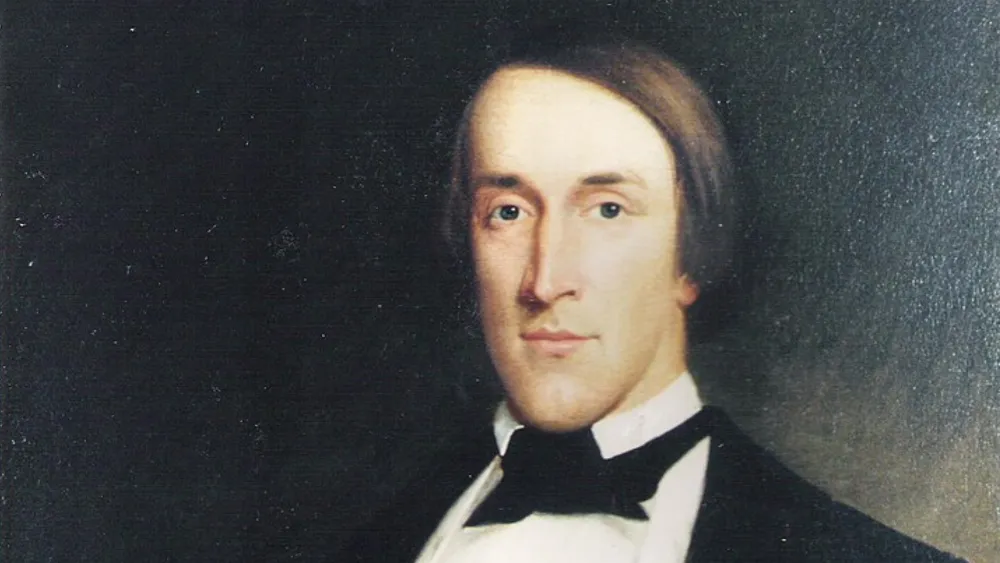Patrick Henry, a prominent and influential figure in the annals of Virginia history, is primarily remembered for his unparalleled oratory skills. His resounding voice carried the fiery spirit of revolutionary fervor, making him a prominent force in the political landscape of Virginia. His contributions were instrumental in shaping the course of events that ultimately led to the American Revolution and Virginia’s initial years as a commonwealth.
The Seeds of Patriotism of Patrick Henry
Patrick Henry grew up in rural Virginia in the 18th century. During his early years, he experienced the simple yet challenging life of a farming family. His father, a tobacco farmer, exposed young Patrick to the toils of agricultural work from an early age.
Despite his limited formal education, his insatiable curiosity and intellect led him to become a voracious reader. He also drew knowledge and inspiration from the books on his father’s modest library shelves.
As he tilled the fields and learned from his father’s teachings in those early days, Patrick Henry unknowingly laid the groundwork for a life dedicated to pursuing knowledge and freedom.
These early experiences would shape the young Henry’s perspective, instilling a deep sense of responsibility and a commitment to challenging injustice wherever he encountered it.
Patrick Henry and his Ambitious Start
Patrick Henry’s early adult life was marked by a string of entrepreneurial setbacks that would mold him into the patriot he was destined to become. His marriage to Sarah Shelton at the age of 18 marked the beginning of his journey into the world of commerce.
Henry’s entrepreneurial spirit led him to explore various ventures, each one which met with adversity. His attempt at storekeeping revealed the challenges of the retail trade. On the other hand, farming presented its difficulties.
Even managing a tavern, a common occupation of the time, proved elusive in terms of financial success.
From Business Frustrations to Colonial Advocacy
Despite the struggles, a deep-seated frustration began to take root within Patrick Henry. During these years of toiling in various business endeavors, he witnessed the heavy-handed interference of the British Crown in the American colonies.
The weight of taxation policies, trade restrictions, and the arbitrary exercise of power by the British authorities left a profound impact on him.
Henry’s frustrations with these injustices simmered beneath the surface, gradually transforming him from a struggling entrepreneur into a staunch advocate for colonial rights and liberties.
The Catalyst for the Two-Penny Act
The Parson’s Cause was Patrick Henry’s first legal battle, filed in 1763. It was one of the earliest judicial challenges to the scope of England’s dominance over the American colonies. Furthermore, this historic case involved Anglican clergy in colonial Virginia. It was crucial in the events leading up to the American Revolution.
In colonial Virginia, ministers of the Church of England received their annual salaries in the form of tobacco. However, a severe tobacco shortage caused by a drought in the late 1750s substantially increased its price.
In response to this crisis, the Virginia legislature passed the Two-Penny Act to rectify the situation. Due to the exaggerated market pricing, this statute set the value of Anglican clergy’s annual pay at two pence per pound of tobacco.
The Anglican clergy became upset with this change and petitioned King George III of Britain. The King overturned the Two-Penny Act and urged the ministers to file a lawsuit to recoup their back wages.
The Virginia Stamp Act Resolutions
The Stamp Act of 1765 marked a turning point in Patrick Henry’s political career and his fervent commitment to the colonial cause. This controversial act, imposed by the British Parliament, mandated direct taxes on paper goods in the American colonies. For Henry, it represented a blatant encroachment on colonial rights and liberties.
The same year, Patrick Henry was elected to the Virginia House of Burgesses, where he would become a formidable voice of opposition. In response to the Stamp Act, Henry took up the pen and drafted what would become known as the Virginia Stamp Act Resolutions.
These resolutions, adopted by the House of Burgesses, boldly asserted that Virginians possessed the exclusive right to tax themselves through their elected representatives, a direct challenge to British taxation without colonial consent.
Henry’s resolutions resonated not only in Virginia but also across the colonies. They became a clarion call for resistance against British taxation without representation, galvanizing the burgeoning anti-British sentiment rapidly spreading throughout the American colonies.

Later Life and Legacy
After the war, Patrick Henry declined to attend the Constitutional Convention in 1787. He feared the new Constitution would create a centralized government with too much power.
His concerns led him to oppose the Constitution, which he believed threatened individual liberties. Nevertheless, he supported the Bill of Rights, and his advocacy helped ensure its ratification.
Patrick Henry retired from politics in 1791 but remained influential in Virginia. He passed away on June 6, 1799, at the age of 63.
Patrick Henry’s legacy endures in American history as a champion of liberty and individual rights. His powerful oratory and steadfast commitment to the cause of American independence helped shape the nation’s early principles and values.
Patrick Henry and His Lasting Influence
Patrick Henry’s life and contributions to American independence testify to the power of conviction. He expressed great courage and eloquence. His influential words, “Give me liberty, or give me death!” continue to resonate with Americans today.
The Founding Fathers made sacrifices to secure the freedoms and principles of the United States. Furthermore, his legacy inspires all who value liberty and the pursuit of a just and free society.











